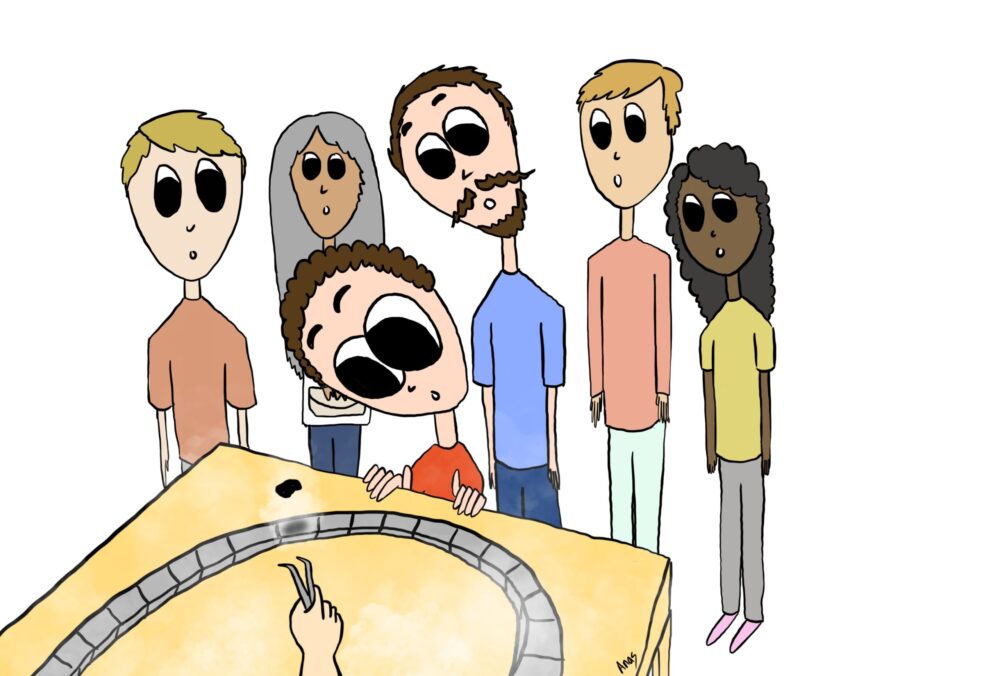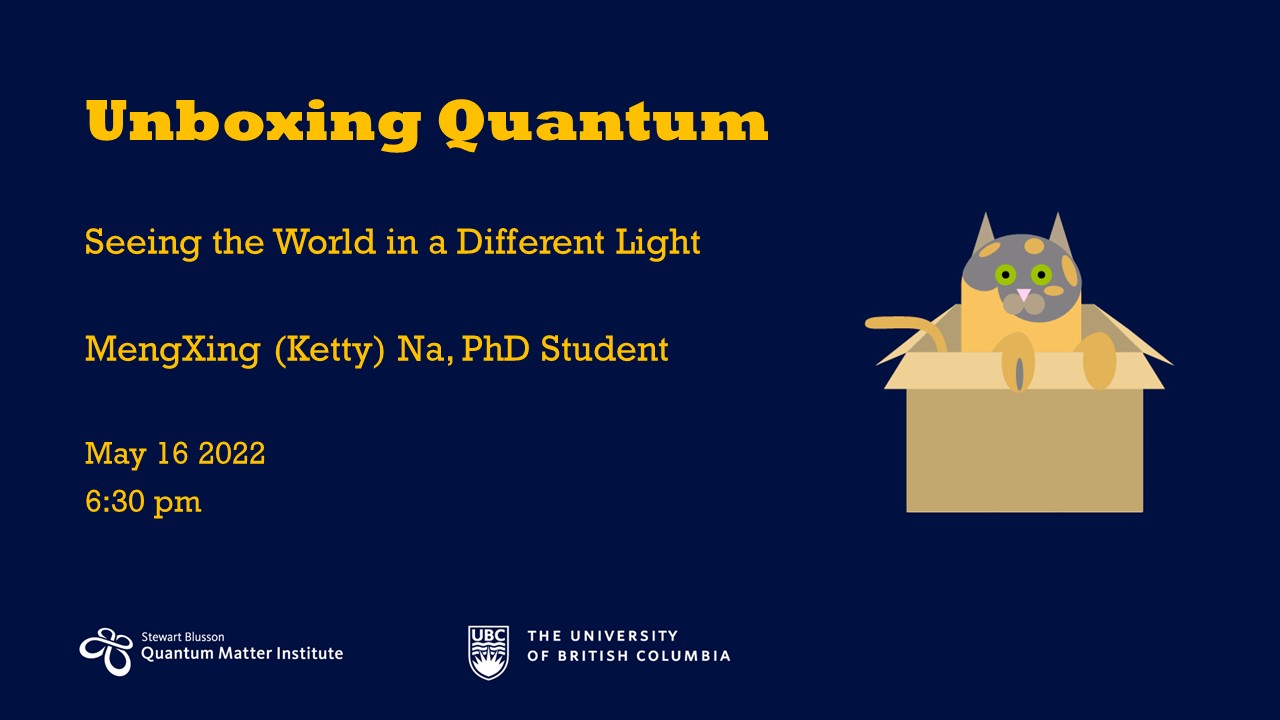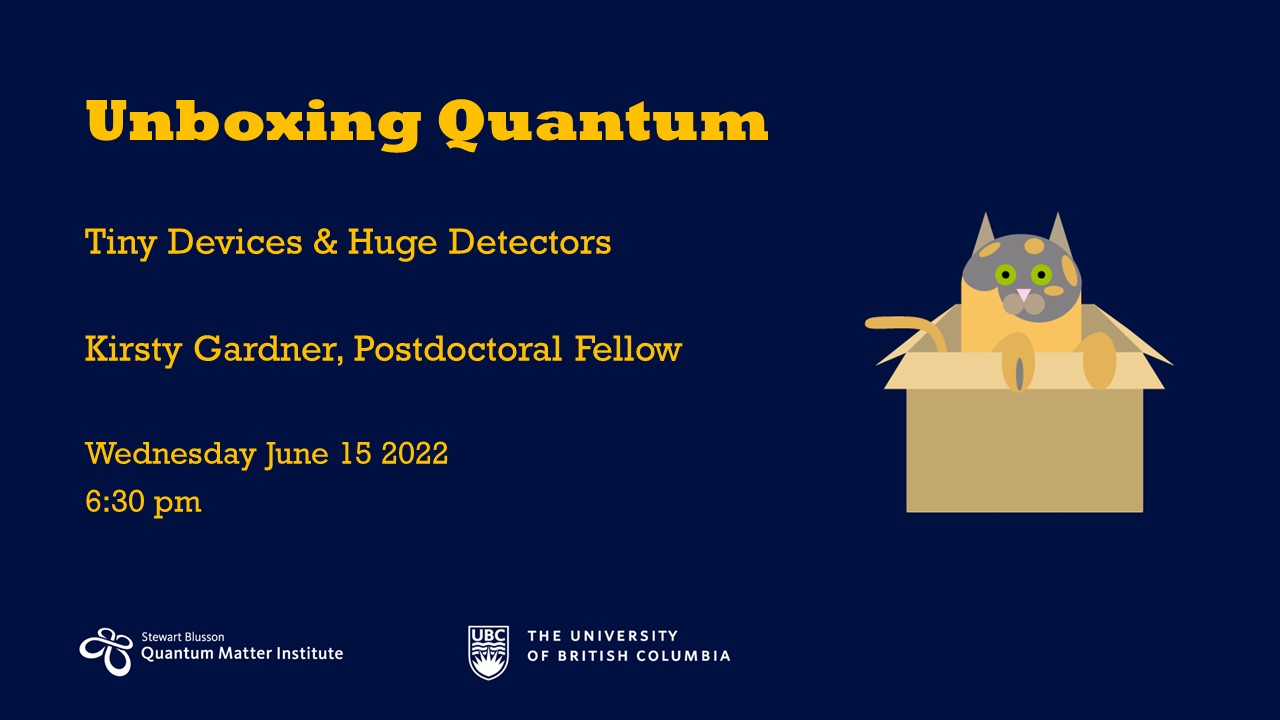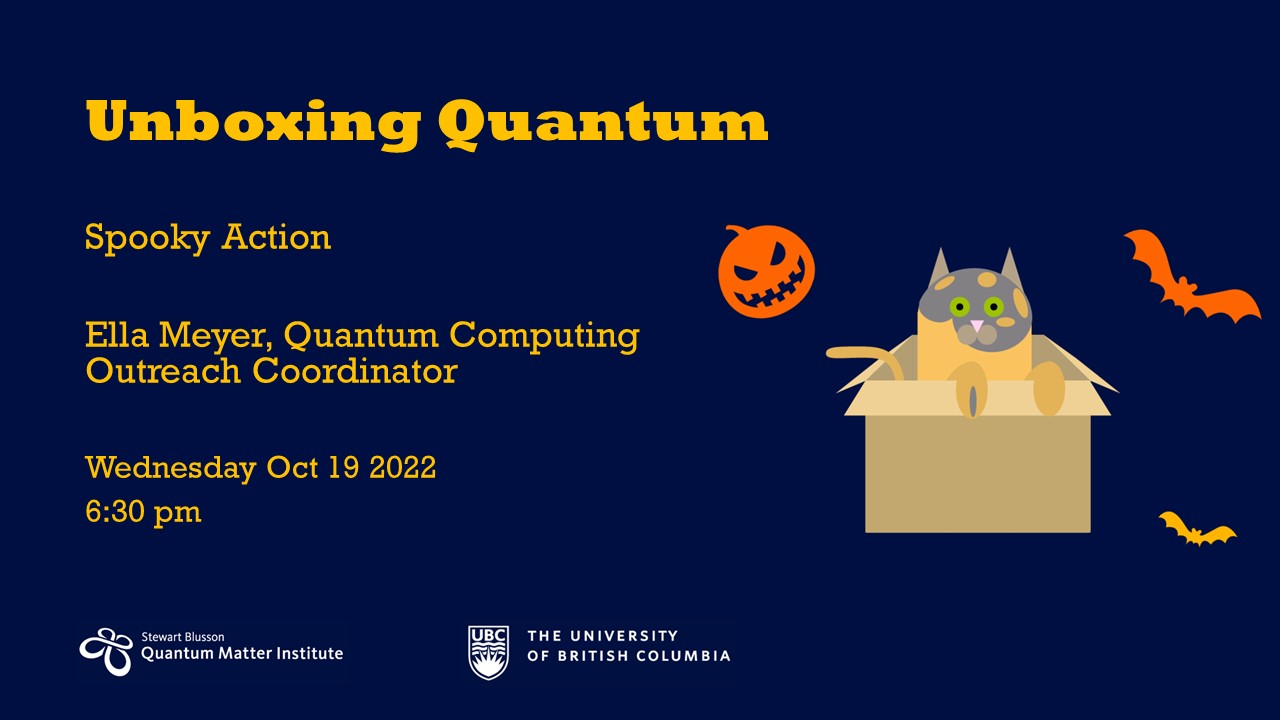Okay but wait … what is “Unboxing Quantum?”
Unboxing Quantum is a public seminar series in which researchers at the Stewart Blusson Quantum Matter Institute at The University of British Columbia talk about what they’re working on, and why it matters to you. Presented in plain language, this series makes quantum science accessible: our goal is to provide meaningful, interesting information about quantum science and technology to general audiences.
Why now?
Canada has long been a leader in quantum science and technological innovation. In 2021, the Government of Canada announced a significant investment to fund a National Quantum Strategy, committing $360 million over seven years and signaling its intention to grow the uniquely interconnected Canadian quantum industry into a global leader.
Quantum science is increasingly relevant to everyday Canadians, as innovations in the field will lead to new tools and technologies, new careers and educational opportunities, and new economic benefits.
Join us as we explore the fun side of quantum, and we’ll make sure you learn something useful along the way!
What do cats have to do with any of this?
Schrodinger’s cat paradox is a famous thought experiment in which a hypothetical cat is trapped in a box containing a vial of poison and a radioactive substance; if the radiation is released, the vial of poison will shatter and the cat will perish. The paradox is meant to illustrate the idea of quantum superposition, in which it is impossible to know the properties of something – in this case, whether the cat is alive or dead, without observing it directly. It’s a way of explaining a complex quantum phenomenon in a way that sticks with you!



